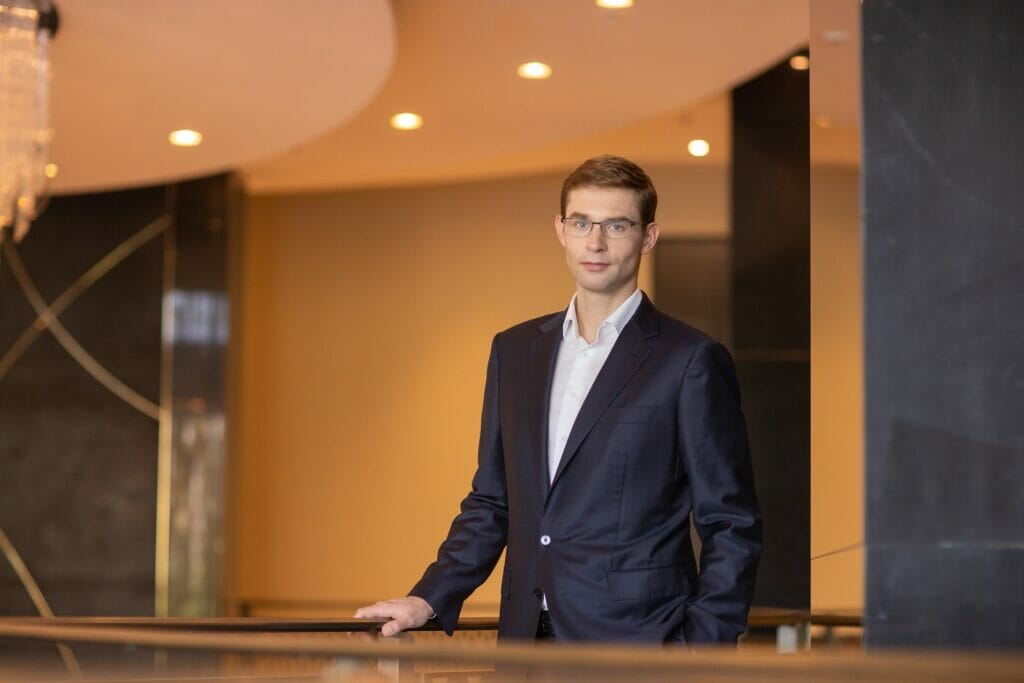“Bears” come to Kazakhstan. Timur Turlov has responded to attacks by Hindenburg Research

Yesterday, on August 15, a company with Kazakh roots was attacked by the «bears» for the first time: Hindenburg Research published material on Nasdaq-listed Freedom Holding Corp., the core of which is Kazakhstani assets – Freedom Finance, brokerage company and Freedom Finance Kazakhstan Bank.
Hindenburg Research doesn’t hide that it belongs to the «bears» that obtain profit when market value of an object of their attack goes down. This structure has experience, with varying degrees of success, of attacking other Nasdaq members such as Singularity Future Technology, HF Foods, the company of Indian billionaire Gautam Adani and even Elon Musk during his deal with Twitter.
The reaction of the markets during the first trading day after the release of the Hindenburg Invective shows that the attack wasn’t particularly effective: at first, FRHC shares declined but then went up again. As a result, at the time of publication, FRHC shares went down by only 4.24%.
In an exclusive interview with Kursiv, the CEO and majority shareholder of Freedom Holding Corp. Timur Turlov spoke about the factors of such stability.
– In its article Hindenburg says, referring to a former employee of Freedom, that you still control assets in Russia, although you officially sold them. Is it true?
– The truth is that the Russian business was sold to Maxim Povalishin. The business was divided, and neither I nor any other shareholders or members of the top FRHC management control it. As for the source Hindenburg referred to, we believe that this is a person who worked for us for a short time. This person didn’t have enough knowledge to continue working with us, but accumulated a lot of resentment and wanted to take revenge on the company. He lost in court to us, and the pain is still with him.
– Nevertheless, you are now under the Ukrainian sanctions.
– Indeed, I was included in the sanctions list by the Ukrainian authorities, like many heads of those financial organizations operating in the Russian Federation. For example, some top managers of American banks in Moscow are also on this list. However, we are working on this issue, and we hope that as soon as Ukraine starts removing at least some from this sanction list, I will no longer be on the list as well.
We lost both Russian and Ukrainian markets and we tried to transfer some of our clients to Kazakhstan. We are open about this fact in our financial reports. The fact that we work with Russian clients should not be embarrassing. We have the strongest sanctions compliance system in the region. It is not flawless from a technical point of view, but we are working on eliminating all those flaws. They do not affect the reliability of key information in our financial statements, but in the future, the improved control will allow us to be more accurate and faster in issuing reports.
As for those clients who have been put on the SDN list, we keep an eye on every case. All our interactions with such individuals occur in accordance with the sanctions restrictions.
There is another story that Hindenburg wrote about in its material. We bought a bank from Igor Sechin, the head of Rosneft, who has been put on the U.S. sanctions list. However, the deal happened in 2015, and at the time it was a regular financial institution, essentially an empty bank with all necessary documents.
As for the Alfa Bank clients mentioned by Hindenburg, we followed the sanction requirements and enticed only those clients who had no problems with OFAC. We did exactly what the U.S. Treasury wanted us to do.
I think it’s very important to understand what the regulators want from us, and not to go too far. Not all actions with Russian clients are subject to restrictions. Therefore, it is important to understand in detail the sanctions regime and all the requirements, and not be afraid of the region where we live.
– There were some questions regarding your asset in Belize – Freedom Securities Trading Inc. (FST Belize). In a text that has made a lot of noise today, Hindenburg said that this entity was used to trade with individuals on sanctions lists.
– First of all, in FST Belize, we have the same sanctions compliance as in the entire holding. Secondly, U.S. legislation clearly reflects the principle of connection with American citizens, companies and money (US nexus), according to which the sanctions regime is applied. There is no reason for sanctions, if there is no involvement of U.S. representatives in the operation. For example, if a non-U.S. company returns money to a non-U.S. person in any foreign currency, the sanctions regime is not inevitable.
– What about «false information» about income? We are talking about the part of the text where the same amount is mentioned ($2.5 billion) in the debit and credit sides of FST Belize.
– It is strange to discuss the existence of fake revenue because our auditor conducted a complete test of all clients to ensure they do exist. It also checked all the income we reflected in our statements. In fact, what was shown as receivables in the FST Belize 2020 report was account balances with the upstream broker. At the time, it was Freedom Europe. When we worked on the last audited report of the holding, we applied all procedures necessary to determine whether the Belizean company should be consolidated or not. In order to do this, we disclosed a significant amount of information to our auditor, and we proved that the company has sufficient positive equity and an adequate balance sheet structure.
– How often has FST Belize issued financial reports since 2020?
– This company has to submit reports to its regulator annually, while it has no obligation to publish them. However, almost all of FST Belize’s operations were within the parameters of the holding itself. In this regard, I think the claim by Hindenburg that the company exposes clients’ assets to extreme risk isn’t reflecting reality. The procedure for using funds and securities of clients is defined in the company’s regulations; it is quite standard and corresponds to the practice of any brokers providing margin trading services in Europe and the U.S.
– Those questions about the FST Belize reports aroused suspicions among the investigators about the harmony of the reporting by the holding itself…
– After a thorough audit, nobody said that our reporting is irrelevant in any way. We resubmitted a number of forms, but the changes were primarily related to the classification of certain statement items. The factual financial result hasn’t changed.
– This is not the first time that the holding has been accused of manipulating prices for its own securities. What is your response to the accusation this time?
– Allegations of manipulation of share prices sound logical until the FRHC business researcher discovers that a significant part of our shareholders are our clients. This is the reason for such a high level of concentration of trading in our shares from those brokers who serve our firm. In fact, they simply serve the transactions of our clients.
– Hindenburg Research said that the FRHC has invested almost $835 million in securities of the Kazakhstan Sustainability Fund (KFU). Can these investments pose any threat to the company’s stability?
– Both our report and a report of our auditors showed that the KFU securities, which is the subsidiary of the National Bank of Kazakhstan, are a highly liquid and reliable instrument in Kazakhstan secured by the regulator. With the help of the securities, a business can receive funds from different sources, including the National Bank, on an ongoing basis. Thanks to guarantees from the National Bank, these securities are highly reliable and are allowed by the regulator for purchase without any restriction in terms of quantity. Moreover, it is equal to government securities.
In Kazakhstan, there is an inversion of the yield curve, the same as in the U.S. This is when money costs more for one night than for a longer period, for example, a year or ten years. This is happening largely because inflation in Kazakhstan is rapidly slowing down, and everyone is waiting for a base rate cut. This means that the current FHRC portfolio can bring big profits to the bank.
– According to the material, FRHC subsidiaries often deal with fines. How big of a problem is this?
– Indeed. We have 244 fines. But we are the largest broker and we have passed the maximum number of inspections. Interestingly, the total amount of our fines based on the results of those inspections shows that most of these violations were of a technical nature.
– Hindenburg said that the holding refused to disclose the details of regulatory requests. According to the reporting, there is little information on this subject indeed.
– We disclosed that we received such requests and that we provided materials of interest to the regulator. However, we have not received any accusations from any regulators. Otherwise, it would have been disclosed in our financial statements. Let me remind you that there are requests from regulators that we can’t disclose, except when charges are brought. Requests from regulators often appear as a reaction to such «analytics.»
– Do you expect any consequences from the attacks of Hindenburg Research on the FRHC business?
– The market value of our shares declined a little bit, which is okay. In any strange situation, some investors prefer to sell stocks. We believe that this criticism will have little effect because we have the opportunity to communicate with our clients, and many clients are shareholders of our company. That is why we have a large concentration in clearing firms.
– Are you going to take any response measures toward Hindenburg?
– We are going to focus on our business and improve ourselves to eliminate any reason to be attacked. Those who make conflicts, do not make money. A moneymaker is someone who knows how to do his job and how to negotiate. Few companies were attacked more than us, few businesses were the object of such expensive negative PR, but it’s all gone. Every year, we serve more and more clients, while our key indicators are constantly growing.


